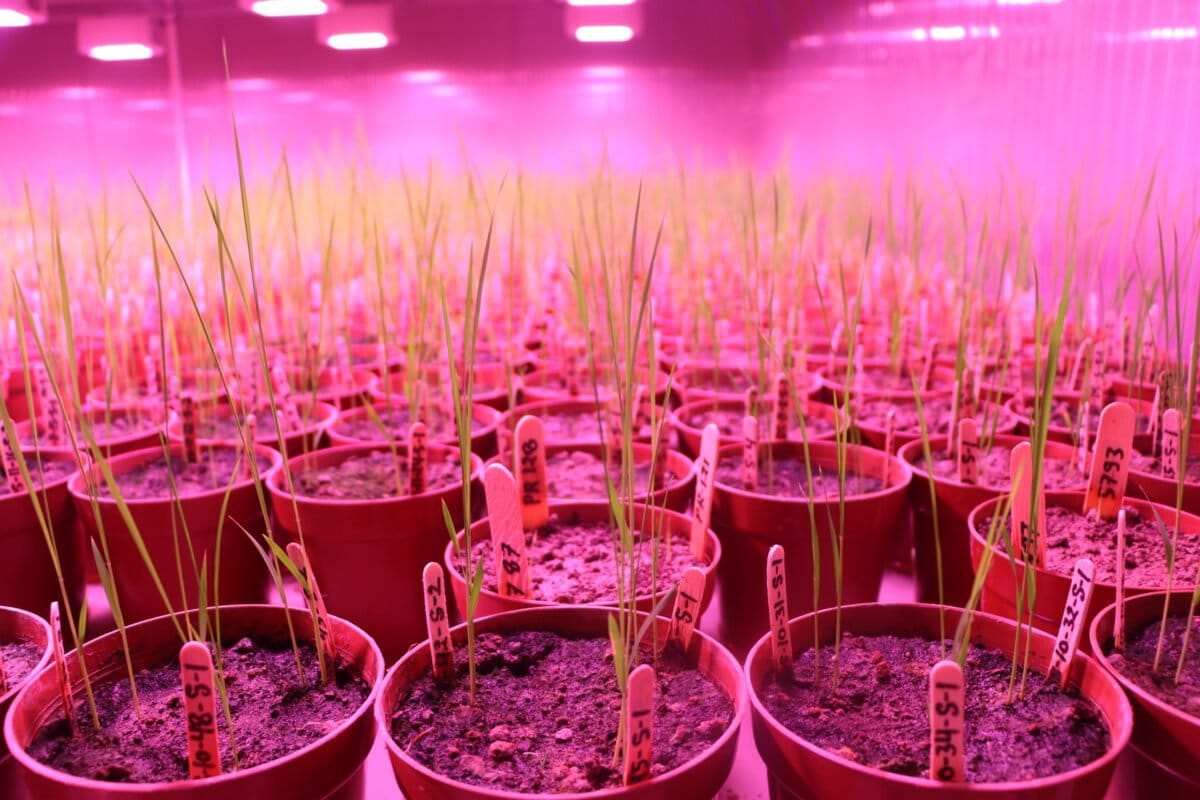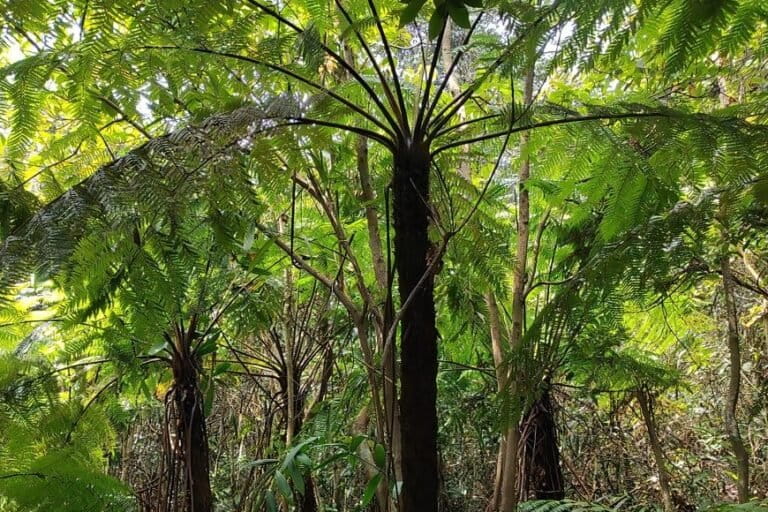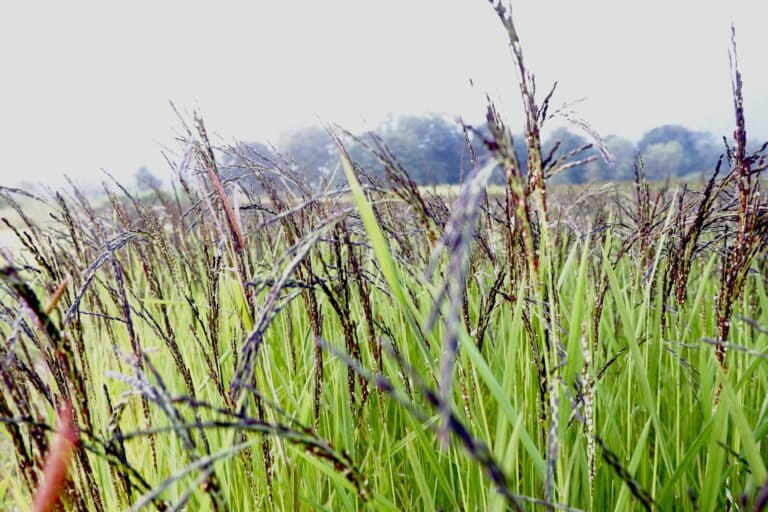- Introduced in India as an ornamental and avenue tree, Conocarpus, native to Africa, has now turned into an environmental and health hazard.
- After massive plantation drives which made the tree widespread, the Gujarat forest department has now issued a complete ban on Conocarpus, calling it a health and environmental hazard.
- Ecologists have welcomed the ban, citing reports of the tree’s pollen causing respiratory illnesses and its lack of resourcefulness for native insects, birds and animals.
The Gujarat forest department, in September last year, banned the Conocarpus tree species in forest and non-forest areas such as nurseries and plantations, citing harm to the environment and human health. A circular issued on September 26, 2023, by the Principal Chief Conservator of Forests and head of the forest force of Gujarat, S. K. Chaturvedi, officially prohibits the plantation and seeding of the invasive Conocarpus in forest areas, nurseries, as well as non-forest areas. The circular highlights the detrimental impact of the exotic tree’s roots on telecommunication cables, drains and freshwater pipelines, posing a risk to infrastructure. Furthermore, it draws attention to the adverse effects of the species’ pollen, which can lead to colds, coughs, asthma and allergies among individuals, particularly during winter. The circular also includes instructions for conducting awareness camps and nature educational programs to effectively inform and educate citizens on the matter.
Conocarpus trees, native to Africa, were initially introduced in India as ornamental trees. Conocarpus lancifolius, one of the two species within the Conocarpus genus, is an indigenous tree that thrives in coastal and riverine regions of Somalia, Djibouti and Yemen. It is widely distributed across the Horn of Africa, the Arabian Peninsula and South Asia.
A.P. Singh, Additional Principal Chief Conservator of Forest (Monitoring and Evanulation) in the state forest department, stated, “By implementing the ban, we are not going to promote exotic species like Conocarpus.” When asked what action will be taken against existing plantations in the state, Singh replied, “Other than departmental plantations, we are not concerned as the decision is at a policy level from the government.”

In Gujarat, Conocarpus has been extensively planted in the Smritivan memorial and museum in Bhuj, which has one of the world’s largest Miyawaki forests, comprising over 300,000 (3 lakh) plants. Among these, Conocarpus is widespread and dominant. Another large-scale plantation of Conocarpus was undertaken in 2017-18 by the civic body of Vadodara as part of a ‘Mission Million Trees’ plantation drive. Conocarpus saplings were also planted in Ahmedabad in 2016-17 along the Sabarmati riverfront and in Ram Van in Rajkot.
Pankaj Joshi, a wildlife researcher in the Bhuj region of Kutch, said, “This species only acts like a green desert without any ecological significance or addition in ecosystem values for human beings, but it is disturbing the entire existing food web of any macro or microhabitats. We have several native plant species that are evergreen, drought resistant, require very little water, saline tolerant, good soil binder, etc. and most importantly, support our insects, butterflies, birds and mammal diversity.”
Government and private organisations that are undertaking plantations often choose Conocarpus because it grows rapidly, said Minoo H. Parabia, a renowned botanist and former head of the Department of Botany at the University of Veer Narmad South Gujarat. However, “these types of trees are dangerous to human health,” said Parabia, referring to the impacts on respiratory health of humans, a major concern given the recent spread of the coronavirus that caused respiratory illness.
These ill-effects are similar in other exotic species across India as well, noted Dharmendra Khandal, a conservation biologist working in Ranthambore, while talking about adverse effects of monoculture on ecological balance. Khandal also noted that the higher levels of pollen during certain seasons and the decline in birds and butterflies are linked to the prioritisation of ornamental exotic species over native plants beneficial to the local ecosystem.

Yuvrajsinh Zala, Deputy Conservator of Forests (DCF), West Kachchh, told Mongabay-India that they had cut down the plantation of Conocarpus trees inside forest premises as per the circular. They are now urging people to prioritise planting native species that not only provide fruits for birds but are also beneficial for the local ecosystem in several ways.
“Implementing the ban on Conocarpus by the Gujarat forest department is a commendable step towards protecting our local tree species. It is crucial for our future generations to connect with and understand the significance of native flora. Mahisagar and Panchamahal districts set a pioneering example by imposing this ban last year. We must prioritise the preservation of our indigenous trees and discourage the dominance of foreign species. Together, we can safeguard our biodiversity for a sustainable future,” Minal Jani, Deputy Conservator of Forests, Godhra and a well-known botanist, told Mongabay-India.

The tree’s fast growth rate and its ability to adapt to harsh conditions made it a popular choice for plantation. Real estate projects, industries, and public gardens can also be seen covered with this tree. Most of them use the tree as an eco-wall, but unfortunately, at the time, many were unaware of the adverse impact of the ‘green wall.’ Conocarpus was reportedly the go-to choice for greening projects as it was helpful in carbon offsetting and can grow using drainage and sewage waters.
However, Dhaivat Hathi, an eco-development consultant from Gujarat, said that developers have begun to discourage the planting of Conocarpus. “It is not because we have something against Conocarpus in particular, but largely because it’s an exotic tree. Our native trees have evolved to be well-adapted to our climate and they sustain a large number of living organisms. These factors make them an integral part of our ecosystems – a part that is irreplaceable by any exotic tree. Some exotic trees might seem like good choices for plantations, but since they’re from a completely different region of the world, sooner or later, they’re quite likely to cause some issues. But the point of the matter is that if we keep bringing in exotic plants, we’ll find another ‘Conocarpus’ in a couple of years,” Hathi said.
Read more: Wayanad’s soured relationship with Senna
Banner image: Close-up of flowering of Conocarpus tree in Bhuj. Photo by Ronak Gajjar.














